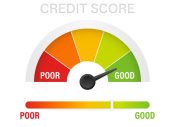Owning property is a significant responsibility, financially and legally. One of the critical obligations that every property owner should be aware of is the payment of property taxes. At times though, homeowners might find themselves unable to meet this obligation, leading to the imposition of a real estate tax lien.
What are Real Estate Tax Liens?
A real estate tax lien is a legal claim by a government entity against a property when the homeowner fails to pay property taxes. The lien ensures that the government can collect the unpaid taxes, and any accrued interest and penalties, by selling the property if necessary. The entity that holds the lien, usually the local government, has a legal claim on the property until the debt is cleared.
While a tax lien can hinder a homeowner’s ability to sell or refinance their property, it does not mean immediate seizure or foreclosure. However, homeowners must understand the implications of a tax lien and how it can affect their property rights.
The Impact of Real Estate Tax Liens
A real estate tax lien has some serious consequences that you shouldn’t overlook. It can put restrictions on what you can do with your property, like selling or refinancing. Plus, it can mess up your credit score, making it harder to get loans or credit in the future.
It’s important to keep in mind that if the property gets sold, the money will first go toward paying off the tax lien. That means the previous homeowner might end up with less profit from the sale. Let’s take a closer look at the main implications of a real estate tax lien:
Restriction on Property Sale
Clearing the tax lien is a prerequisite for transferring the property’s title to a new owner, making it challenging to sell.
Difficulty in Securing Financing

Lenders may hesitate to refinance a mortgage or provide financing for a property with a tax lien, given the increased risk involved.
Potential for Foreclosure
Continued nonpayment of the tax debt may prompt the government entity to foreclose on the property to recover the owed taxes.
Credit Score Impact

A tax lien can significantly lower a homeowner’s credit score, impairing their ability to secure future loans or credit.
Accrued Fees and Interest
Over time, the tax lien amount can escalate due to penalties and interest, further burdening the homeowner financially.
These points show how serious a real estate tax lien is and stress the need to deal with it quickly and efficiently.
Real estate tax liens are a critical aspect of property ownership that every homeowner should understand. They represent a serious obligation and can have substantial implications for your property and financial health. If you find yourself facing a real estate tax lien, it’s advisable to consult with a tax or legal professional to help negotiate the terms or possibly remove the lien. With the right knowledge and assistance, handling a real estate tax lien can be manageable.
Stay informed and make informed decisions by subscribing to our blog and newsletter. Whether you’re a new homeowner or aiming to upgrade to a larger space, having a clear understanding of these vital aspects is crucial. For comprehensive information on 55+ and active adult lifestyle communities, visit ActiveAdultLiving.com.




